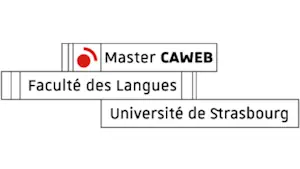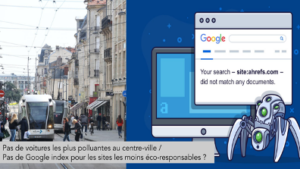CAT tools: can technology replace human translators?
What are the differences between machine translation and computer-aided translation?
Machine translation is generated by a software, and is based on a dictionary to which users can contribute. The most common tool is the one we all used once: Google Translate. Machine translation can be useful if you only want to understand the general meaning of a text.
Computer-aided translation (CAT) is, on the other part, a powerful tool for professional translators. It allows them to reuse the translations they have already made by storing them in a specific database. CAT tools thus make translations more coherent and helps matching the style and needs of a specific company, for example. CAT allows translators to save money, time and gain quality. The most common CAT software are SDL Trados, OmegaT, MemoQ et DejaVu.
How do computer-aided translation tools work?
Computer-aided translation tools are operating platforms gathering applications for managing multilingual materials. They display source and target texts side-to-side. Only source text is extracted, in segments, which correspond to sentences, in order than the translator can focus on elements to translate and modify typography to work more comfortably. Target text will automatically adapt to source text format.
The translations already made are added to multilingual and interactive dictionaries and are progressively saved into integrated databases. Translator then checks if the translation suggested by the software matches source segment and can modify or validate the translation.
Interested in CAT? Check out Master’s TCLoc’s interview of Gaëtan Chrétiennot, a CAT tool expert.
Advantages and disadvantages of computer-aided translation
Computer-aided translation tools guarantee consistency of terminology throughout the text (when similar sentences or terms appear later in the text) and help avoiding mistakes. Pre-translated grammatical and orthographic suggestions allow linguists to reduce the time needed to type. CAT tools are particularly relevant when it comes to technical documents, such as contracts and financial documents, because they use to contain a lot of repetitions.
However, CAT tools are ineffective to translate literary texts because they cannot process the different meanings hiding behind each word or sentence and the variation of vocabulary which is needed. Moreover, translating cultural references, puns and humor is a creative task. Machines are not ready to handle it yet. This type of text requires a human translator who has a wide knowledge of the target culture.
CAT tools thus enhance translation quality and allow human translators gaining time on each project, allowing them to meet deadlines easier, giving the fact turnaround time for them is getting shorter and shorter, and to focus on translating rather than checking formats or mistakes.
So, if CAT tools are so efficient and productive, won’t they be able to replace human translators in a few years?
Well, in a few years it’s hard to say, but tomorrow they may not. In fact, they were created to enhance the translator’s workflow. CAT tools help him, but cannot be efficient and accurate without the work of a human linguist. Machine needs human, and vice versa.
Freelance translators have to cope with the fall of per-project and per-word rates. However, their income is not likely to decline: while per-word rate is declining, productivity is increasing, thanks to CAT tools. And it does not mean translators will work less. In fact, they work more with CAT tools, which allow them to translate 4,000 words a day, so the double amount of words than they used to without CAT!
To be or not to be in the 21st century, that is (not anymore) the question
Nowadays, CAT tools are used by all the main language service providers and freelance translators in order to improve their translation quality and productivity. And there is no doubt such softwares are to become more and more popular.
Written by Aurore Koeffer
Other articles
-

Discover our online Master’s CAWEB Program in digital communication
-

4 Ways to Achieve a Successful Influencer Marketing Strategy
-

Understanding the Difference Between UX Design and UI Design
-

2026 UX Resolution: Make Online Experiences Accessible
-

The 5 Best JavaScript Frameworks to Learn in 2022


